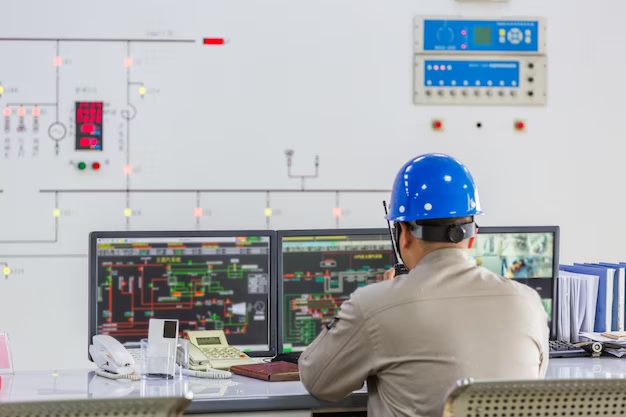In order to supply power safely and effectively, transformers are vital parts of our electrical networks. They are responsible for scaling up or down voltage as needed. Transformer providers must maintain the highest standards of quality and efficiency in order to satisfy the needs of diverse industries and guarantee dependable power distribution. The strategies and procedures used by transformer suppliers to guarantee the best and most dependable performance of their goods are examined in this article.
Understanding the Importance of Quality and Efficiency in Transformers
Before delving into the specifics of how quality and efficiency are maintained, it’s important to understand why these elements are so crucial:
1. Ensuring Safety
Transformers handle high voltages and currents. Quality and efficiency in their design and manufacturing are crucial to prevent electrical failures, which can lead to safety hazards such as fires or explosions.
2. Reducing Energy Losses
A well-designed, efficient transformer minimizes energy losses, which is essential for reducing electricity costs and environmental impact. Efficient transformers use less energy to do their job, which also helps conserve natural resources.
3. Prolonging Equipment Lifespan
Quality transformers are built to last. They can withstand harsh conditions and operate reliably over long periods, reducing the need for frequent replacements and maintenance.
Note:- Seeking trustworthy Transformer Suppliers In UAE? Get in touch with Al Arz Electrical right now! With years of experience in transformer manufacturing, distribution, and maintenance, we can guarantee high-quality products that satisfy your electrical needs. Our team is here to help you with basic transformers or specialized solutions.For all transformer needs, get in touch with Al Arz Electrical.
How Transformer Suppliers Maintain High Quality
Quality is a hallmark of good transformer suppliers. Here’s how they ensure their transformers meet the highest standards:
1. Using High-Quality Materials
Superior Core and Coil Materials
Transformer efficiency largely depends on the core and coil materials used. Suppliers often use high-grade silicon steel for the core to reduce energy losses. For the coils, copper is typically preferred for its excellent electrical conductivity and durability.
Robust Insulation and Cooling Systems
To ensure the transformers can handle high voltages and prevent overheating, high-quality insulation materials and efficient cooling systems are essential. These components help prevent faults and extend the transformer’s operational life.
2. Advanced Manufacturing Techniques
Precision Engineering
Suppliers use advanced manufacturing technologies to achieve precision in the assembly of transformers. This precision helps in maintaining tight tolerances that are crucial for the efficiency and longevity of transformers.
Automated Systems
Many suppliers incorporate automated systems in their manufacturing processes. These systems provide consistent quality and reduce human error, ensuring every transformer meets the same high standards.
3. Rigorous Testing Procedures
Routine Tests
Each transformer undergoes various routine tests before it leaves the factory. These include electrical, thermal, and mechanical tests to ensure the transformer can operate under different conditions without failure.
Type Tests
For new designs, type tests are conducted to validate the design under extreme operating conditions. This ensures that the transformers will perform as expected in real-world applications.
Enhancing Efficiency in Transformer Production
Efficiency is not just about product performance but also how the transformers are produced. Here’s how suppliers optimize efficiency:
1. Streamlined Production Processes
Lean Manufacturing
By adopting lean manufacturing principles, suppliers can minimize waste and increase production efficiency. This approach focuses on maximizing value for the customer through efficient resource use.
Continuous Improvement
Suppliers often engage in continuous improvement programs, like Six Sigma, to enhance their production processes. These programs help identify inefficiencies and find solutions to streamline operations and reduce costs.
2. Innovative Design Solutions
Optimized Transformer Designs
Suppliers continuously work on improving their transformer designs to enhance performance and efficiency. This might include innovations in core design, coil arrangement, or insulation techniques to reduce losses and improve efficiency.
Customized Solutions
Understanding that different applications may have unique requirements, suppliers often offer customized transformer solutions. This tailored approach ensures that the transformer not only meets the standard requirements but also fits perfectly with the customer’s specific operational needs.
The Role of Certifications and Standards
Certifications and standards play a pivotal role in the transformer manufacturing industry. They ensure that all products meet specific safety, quality, and efficiency benchmarks, which are crucial for their reliable operation and longevity. Understanding how these certifications and standards impact the production and performance of transformers can help users and manufacturers alike appreciate their significance.
Why Certifications and Standards Matter

1. Ensuring Safety
Safety is the foremost concern in the design and manufacturing of electrical transformers. Certifications and standards require that transformers be designed to prevent failures that could lead to safety hazards such as electrical shocks, fires, or explosions. Compliance with these regulations guarantees that a transformer is safe for use under the conditions for which it was designed.
2. Guaranteeing Quality
Certifications are a testament to a transformer’s quality. They assure that the product has undergone rigorous testing and meets the criteria set by regulatory bodies for performance and durability. This not only helps in building consumer trust but also in establishing a manufacturer’s reputation for quality.
3. Promoting Consistency
Standards provide a framework for consistency. They ensure that products are manufactured using uniform methods and materials, which helps in maintaining consistent quality across multiple production batches and different manufacturing sites.
4. Facilitating International Trade
Compliance with internationally recognized standards can be crucial for manufacturers looking to export their products. Certifications make it easier to enter global markets as they assure potential clients and regulatory bodies in other countries that the products meet international quality and safety standards.
Key Certifications and Standards in Transformer Manufacturing
1. ISO 9001: Quality Management System
ISO 9001 is one of the most widely recognized standards for quality management systems. It requires organizations to demonstrate their ability to consistently provide products that meet customer and regulatory requirements and to enhance customer satisfaction through effective application of the system.
2. IEEE Standards
The Institute of Electrical and Electronics Engineers (IEEE) sets industry-wide standards for a wide range of electrical technologies, including transformers. These standards cover everything from testing and performance parameters to safety guidelines.
3. IEC Standards
The International Electrotechnical Commission (IEC) provides standards for all electrical, electronic, and related technologies. These standards are crucial for ensuring the reliability and safety of electrical products and include specific provisions for the design, testing, and deployment of transformers.
4. ANSI Standards
The American National Standards Institute (ANSI) provides a set of standards that encompass a variety of electrical systems, including transformers. These standards help ensure that the equipment performs efficiently and reliably.
Conclusion
Quality and efficiency are the cornerstones of reliable transformer supply. Transformer suppliers who prioritize these aspects in their products ensure that their customers receive durable, efficient, and safe transformers. This not only helps in reducing operational costs but also supports sustainability by minimizing environmental impact.
By choosing a transformer supplier who adheres to high standards of quality and efficiency, businesses can ensure they are investing in a product that will deliver superior performance and longevity, contributing positively to their operational success.
Transformer suppliers play a crucial role in our electrical infrastructure by ensuring that these essential components are not only made to the highest standards but are also continuously improved to meet the evolving demands of modern electrical systems. Partnering with a dedicated and reliable supplier guarantees that your electrical needs are met with the utmost professionalism and expertise, providing peace of mind and fostering long-term success.
Note:- To read more articles visit on dailybloggernews.
 Daily Blogger News Stay updated with the latest trends and insights. Your reliable source for daily updates and information.
Daily Blogger News Stay updated with the latest trends and insights. Your reliable source for daily updates and information.







